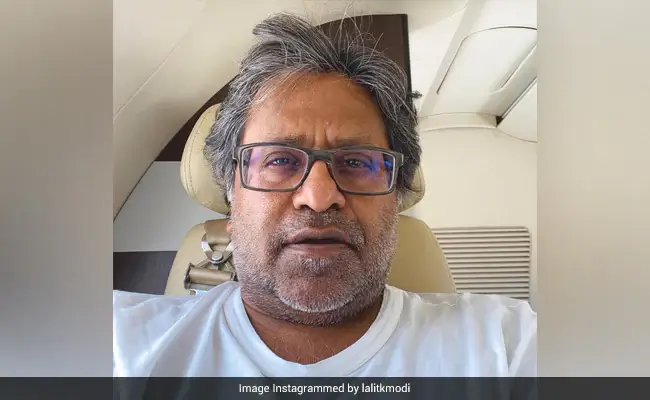Introduction
In 2010, Lalit Modi, the former Chairman and Commissioner of the Indian Premier League (IPL), was accused of financial irregularities and conflict of interest during his tenure. He was subsequently charged with a number of offenses, including money laundering, and fled to London to avoid arrest.
After a long legal battle spanning over a decade, the Supreme Court of India has finally closed the case, accepting Modi’s “unconditional apology.” In this article, we will delve into the details of the case, the apology, and the implications of this decision.
Lalit Modi’s Case: A Brief Overview
Lalit Modi, a former businessman turned cricket administrator, was instrumental in the creation and success of the Indian Premier League (IPL), a professional Twenty20 cricket league in India. However, his tenure was marred by accusations of financial irregularities and conflict of interest, which eventually led to his ouster as the Chairman and Commissioner of the IPL.
Following his removal, Modi was charged with a number of offenses, including money laundering, by various investigative agencies such as the Enforcement Directorate (ED) and the Income Tax Department. He was also issued a lookout notice and his passport was revoked, which forced him to flee to London in 2010.
Over the years, Modi fought a legal battle to clear his name and return to India, but the cases against him continued to pile up. In 2018, the ED seized assets worth Rs 16.39 crore belonging to him in India, including a Mumbai-based property, a farmhouse in Aligarh, and several bank accounts.
The Unconditional Apology
In January 2021, Lalit Modi filed an “unconditional apology” in the Supreme Court of India, expressing regret for his past actions and seeking closure of the case against him. The apology was filed through his lawyers and was said to be a “last-ditch effort” to resolve the long-standing legal battle.
In his apology, Modi stated that he had “no intention of evading the process of law” and that he was “willing to face the legal consequences of his actions.” He also expressed remorse for the “harm caused to the image of the game of cricket and the country as a whole.”
The Supreme Court accepted Modi’s apology and closed the case, noting that “the apology tendered is unconditional and the petitioner has expressed remorse for his actions.” The court also observed that “the petitioner has been facing these proceedings for more than a decade and has been making efforts to return to India to face the charges against him.”
Implications of the Decision
The Supreme Court’s decision to accept Lalit Modi’s apology and close the case has far-reaching implications for the former IPL Commissioner and the Indian cricketing fraternity as a whole. Some of these implications are:
- Closure of the Case: With the case finally closed, Lalit Modi can now return to India without fear of arrest and face the legal consequences of his past actions.
- Redemption for Modi: The acceptance of his unconditional apology by the Supreme Court could also help restore Lalit Modi’s reputation and image, which had taken a severe beating in the aftermath of the IPL controversy.
- Cricketing Fraternity: The case had cast a shadow on the Indian cricketing fraternity, with allegations of corruption and financial irregularities. The closure of the case could help restore the faith of the fans and stakeholders in the integrity of the game.
Conclusion
The Supreme Court’s decision to accept Lalit Modi’s “unconditional apology” and close the long-standing legal battle against him marks the end of a tumultuous chapter in Indian cricketing history. The IPL controversy had cast a shadow on the integrity of the game and the closure of the case could help restore the faith of the fans and stakeholders.
While the decision to accept the apology has been welcomed by some as a step towards closure, others have criticized it as being too lenient on a person accused of financial irregularities and corruption. Nevertheless, the closure of the case marks an important milestone in the fight against corruption in Indian sports and sends a message that no one is above the law.
FAQs
Q: What were the specific charges against Lalit Modi?
A: Lalit Modi was charged with a number of offenses, including money laundering, criminal conspiracy, cheating, and forgery. These charges were filed by various investigative agencies such as the Enforcement Directorate (ED) and the Income Tax Department.
Q: Why did Lalit Modi file an unconditional apology?
A: Lalit Modi filed an unconditional apology in the Supreme Court of India in a bid to resolve the long-standing legal battle against him. The apology was said to be a “last-ditch effort” to seek closure of the case and express remorse for his past actions.
Q: What are the implications of the Supreme Court’s decision to accept Lalit Modi’s apology?
A: The acceptance of Lalit Modi’s unconditional apology and closure of the case has far-reaching implications for the former IPL Commissioner and the Indian cricketing fraternity as a whole. Some of these implications include closure of the case, potential redemption for Modi, and restoration of faith in the integrity of the game.
READ MORE ABOUT: Supreme Court sets aside Bombay HC order acquitting ex-DU professor Saibaba in Maoist links case










